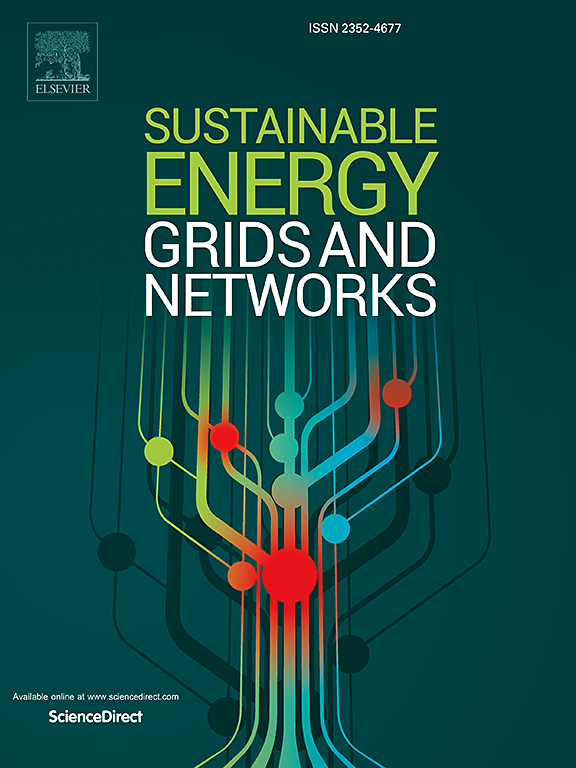Distributed photovoltaic power forecasting based on personalized federated adversarial learning
IF 4.8
2区 工程技术
Q2 ENERGY & FUELS
引用次数: 0
Abstract
Existing distributed photovoltaic (PV) power forecasting methods fail to address the impact of sample scarcity and heterogeneity in PV power data. Moreover, training a single prediction model proves challenging to meet the personalized forecasting needs of different PV stations in distributed environments. This paper proposes a personalized federated generative adversarial network (PFedGAN)-based DPV power forecasting method. Leveraging the federated learning (FL) framework, it achieves collaborative training of prediction models among DPV stations while preserving data privacy. y introducing generative adversarial networks (GAN) and personalized strategy optimization into the FL training process, it alleviates data scarcity issues and reduces the impact of data heterogeneity. A TimesNet-DeepAR (TNE-DeepAR) power prediction model is designed, where the TimesNet module extracts correlations between PV power data from different time periods, and the DeepAR module facilitates PV power prediction, mitigating the effects of meteorological factors' multi-periodic variations on PV power. Experimental results show that the proposed hybrid prediction model reduces the average mean absolute percentage error (MAPE) by 30–40 % compared to single models. The proposed approach reduces the MAPE by 9.79 % compared to traditional methods and by 49.62 % for PV stations with scarce data.
基于个性化联合对抗学习的分布式光伏发电功率预测
现有的分布式光伏(PV)功率预测方法未能解决光伏功率数据中样本稀缺性和异质性的影响。此外,要满足分布式环境中不同光伏电站的个性化预测需求,训练单一预测模型具有挑战性。本文提出了一种基于联合生成对抗网络(PFedGAN)的个性化 DPV 功率预测方法。它利用联合学习(FL)框架,在保护数据隐私的同时,实现了 DPV 站之间预测模型的协同训练。在 FL 训练过程中引入生成对抗网络(GAN)和个性化策略优化,缓解了数据稀缺问题,降低了数据异质性的影响。设计了 TimesNet-DeepAR(TNE-DeepAR)功率预测模型,其中 TimesNet 模块提取了不同时间段光伏功率数据之间的相关性,DeepAR 模块促进了光伏功率预测,减轻了气象因素多周期变化对光伏功率的影响。实验结果表明,与单一模型相比,所提出的混合预测模型可将平均绝对百分比误差 (MAPE) 降低 30-40%。与传统方法相比,所提出的方法可将 MAPE 降低 9.79%,对于数据稀缺的光伏电站,可将 MAPE 降低 49.62%。
本文章由计算机程序翻译,如有差异,请以英文原文为准。
求助全文
约1分钟内获得全文
求助全文
来源期刊

Sustainable Energy Grids & Networks
Energy-Energy Engineering and Power Technology
CiteScore
7.90
自引率
13.00%
发文量
206
审稿时长
49 days
期刊介绍:
Sustainable Energy, Grids and Networks (SEGAN)is an international peer-reviewed publication for theoretical and applied research dealing with energy, information grids and power networks, including smart grids from super to micro grid scales. SEGAN welcomes papers describing fundamental advances in mathematical, statistical or computational methods with application to power and energy systems, as well as papers on applications, computation and modeling in the areas of electrical and energy systems with coupled information and communication technologies.
 求助内容:
求助内容: 应助结果提醒方式:
应助结果提醒方式:


